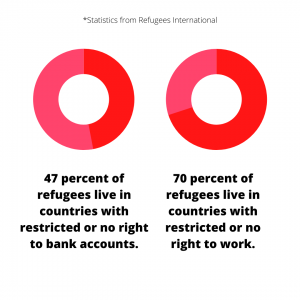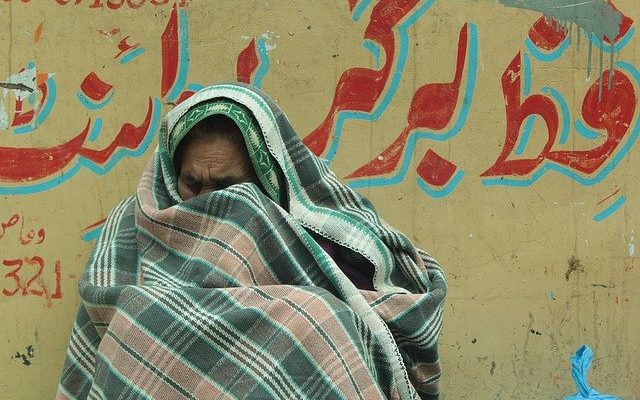The British Refugee Council says that while Rishi Sunak has increased the standard allowance of Universal Credit by £20 a week for 12 months ‘to strengthen the safety net for the UK population’, people seeking asylum (who were already receiving significantly less than those on Universal Credit) have not received a similar uplift.
This leaves many of them struggling to pay for their costs with £39.63 per week.
On June 8th 2020, the Immigration Minister announced that Asylum support rates would increase from £37.75 to £39.60 per week from June 15th on a temporary basis pending a review.
The review completed on 27th October, increased the support rates to £39.63, an increase of 3p per week.
The Council said: “this continues to stand in stark contrast with the uplift awarded to Universal Credit.”
During the pandemic, refugees and asylum seekers have not only been facing financial hardship but a slowing of the system designed to progress their cases.
The British Refugee Council told Buzz that this has resulted in an increase in the backlog of people waiting for a decision on their case.
People seeking asylum are not allowed to work or claim welfare benefits and are only eligible for ‘Asylum Support’ which takes the form of accommodation and a weekly financial payment of £39.63 per person.
The Council added:“The fact that the decision-making process has slowed down means that people are having to spend longer on asylum support than would ordinarily be the case.”

Internationally refugees have also been further impacted by the pandemic.
Partly as a result of restrictions such as this, most refugees work in the informal economy and in sectors that have been deemed as “highly impacted” by the pandemic.
COVID-19 is therefore likely to lead to widespread loss of livelihoods and an increase in poverty among this population.
The International Rescue Committee told Buzz:
“The pandemic is a powerful reminder of the world’s inequalities, with the most vulnerable people, including refugees and displaced people, being hardest hit by the impact of the pandemic.”
A representative from the committee said an example of this is the many refugees and displaced people who are being confined to overcrowded refugee camps, where social distancing is impossible and basic healthcare and sanitation is hard to access.
The group said: “We are especially concerned about the economic impact of the pandemic, which is leading to increased hunger in places like Yemen and South Sudan, as food prices become unaffordable.”
According to these charities, the pandemic has made finding and retaining work even harder for refugees and asylum seekers, pushing many into poverty.
The current level of asylum support (£39.63 per person) is not deemed sufficient to cover essential living costs.
According to The British Refugee Council, it is clear that “people are far from being able to meet their essential needs”, and children’s development is set to be compromised.
The negative impact of having to survive on such a low level of support is being exacerbated by the increasing length of time people are having to spend on asylum support.
The UK government website states: “You may be able to get housing and money to support you and your family while you’re waiting to find out if you’ll be given asylum. This also means your children will go to a free state school and you may get free healthcare from the National Health Service (NHS). You can still apply for short-term support if you’ve been refused asylum and are preparing to leave the UK.”
The British Refugee Council says the UK government could do more to address the negative impact of poverty during the pandemic, including; increasing the rate of asylum support, putting a plan in place to address the backlog of cases and allowing people seeking asylum the right to work.
The International Rescue Committee said:
“As the world struggles to deal with the fallout of COVID-19 across its richest nations, the needs of the most vulnerable must not be neglected nor forgotten. The international community, especially major donors like the USA, UK and Europe, must invest immediately in supporting vulnerable communities to rebuild and recover from the impacts of the pandemic.”


 Jogger from Bournemouth gives advice to new runners.
Jogger from Bournemouth gives advice to new runners.